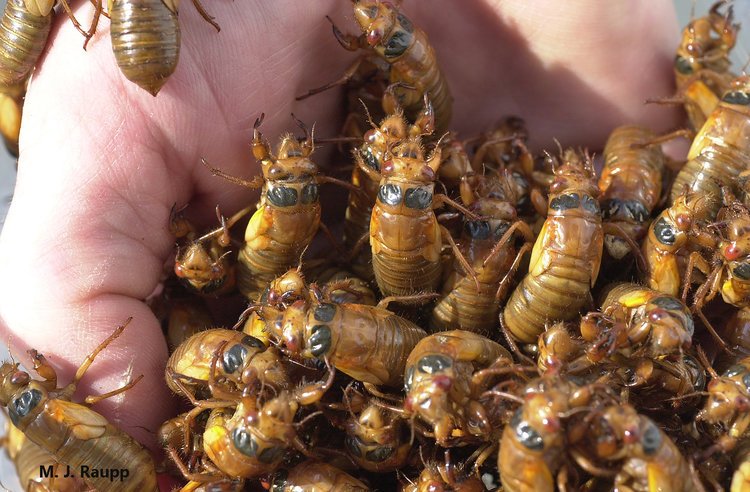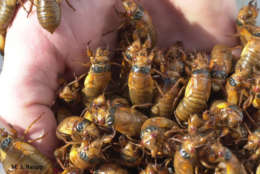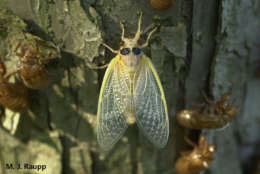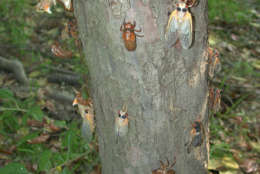





WASHINGTON — Don’t be alarmed by big bugs and exoskeleton shells attached to items around your house — cicadas emerging in the D.C. area won’t hurt you.
The insects typically crawl out of the ground in 17- and 13-year cycles. This time around is an off-schedule appearance.
“We don’t know exactly why this happens. All we know is that it does happen,” said University of Maryland entomologist Mike Raupp.
There are numbers of theories, Raupp said, including that it might be associated with climate change: This latest outbreak is expected to grow as temperatures rise throughout the week.
The “periodical” cicadas that are emerging might belong to Brood Six, first documented in the early 1900s. Raupp said they also could be early arrivals of the massive Brood X that’s expected in 2021.
The bloom of cicadas will feed lots in the environment. “They’re going to be a phenomenal nutrient source for many, many different kinds of vertebrates: birds, foxes and skunks,” Raupp said.
Dogs, cats and even some people enjoy eating cicadas that are considered a low-carb, low-fat snack. Don’t worry if your pets eat a few.
“Just don’t let them eat too many,” Raupp warned. “They can cause a few digestive problems.”
On Raupp’s latest “Bug of the Week” blog post, he asks others to be on the lookout for cicadas:
CALL TO CITIZEN SCIENTISTS: We need your help! If you see periodical cicada nymphs, shed skins, adults on vegetation or on trees, please report your sightings to magicicada.org. Cicada experts are attempting to map the distribution of these magnificent and magical insects. Thank you for your help.
Even if you see no evidence of cicadas, they might make themselves known to you by their deafening songs. “These are among Mother Nature’s loudest creatures,” Raupp said. “The decibels can range upward of 85 to perhaps more than 100 decibels.”
That’s similar to a rock concert or jet airplane flying overhead.








